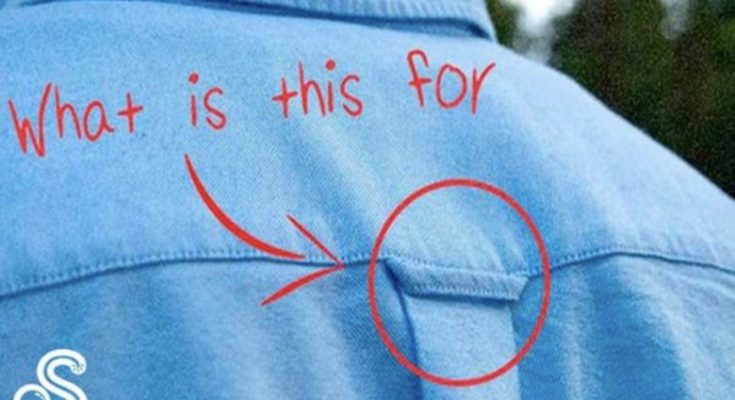
If you’ve ever looked closely at your clothes, you may have noticed that some of them have a loop at the back. Dress shirts for men frequently have this loop. If you happen to spot it, there’s a potential use for it that you may not have realized until recently. Shirts with buttons down are typically worn casually.
When paired with appropriate jeans and additional accessories, it can be styled as a sophisticated piece. For individuals who frequent the gym, a little loop was positioned on the back. Instead of searching for a closet or making sure there is a place to put the shirt before joining others somewhere else than the house, it makes it simple to remove and hang the shirt.
An additional application of the loop has been to indicate a person’s relationship status or single status. If the shirt’s loop is removed, it indicates that the wearer is in a committed relationship and doesn’t need to hang the clothes anywhere else. The loop is now merely an additional piece of material sewn into garments, so its original meaning has been lost.
American fashion has changed significantly over the past century, and it’s frequently fun to take a trip down memory lane to learn a little bit about the past. You’ll find that certain things haven’t changed at all, in fact.
This especially applies to men’s attire. One piece of unquestionably true but subtle information that you may have overlooked is the back-of-the-shirt loop. It’s there, staring back at you from the middle yoke, daring you to grab it or use it to whirl the t-shirt around on your finger.
Often referred to as a “fairy loop” or “locker loop,” it is sewn onto many button-down and oxford t-shirts. The purpose? The loops are meant to be used for hanging the t-shirts up, as you may have guessed. In certain circumstances, the locker loop’s genesis myth is linked to American sailors who used them to hang their t-shirts while aboard ships.
In the end, they became a standard component of “preppy” gear worn by college students in the 1960s as part of mainstream menswear. This button-down is said to have originated on Ivy League yards across the country, according to clothing manufacturer Gant. The man who started the company first offered Yale’s search for male trainees the t-shirt design, and eventually, word got out.



